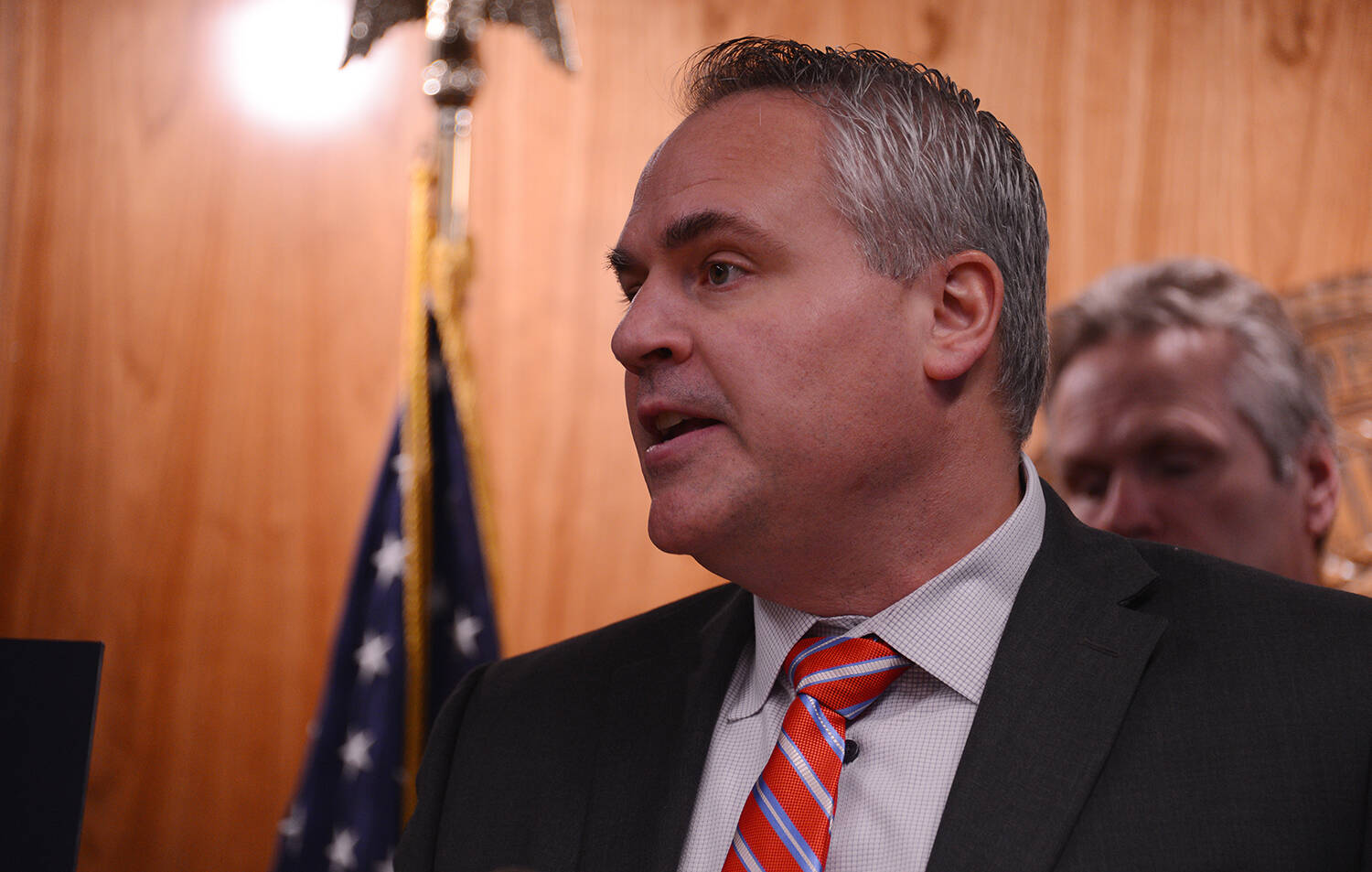The Alaska Department of Law “likely violated” Alaska law and the state constitution when it spent more than $300,000 on a lawsuit awaiting review by the U.S. Supreme Court, the Alaska Legislature’s top auditor concluded in a report released last week.
The report, in process since October 2020, analyzed competing arguments from attorneys representing the department and the Legislature, then hired an independent attorney to perform a separate analysis.
The conclusion: The Department of Law should not have been able to spend money on a Washington, D.C. law firm attempting to prove the legality of Gov. Mike Dunleavy’s plan to change the way public-employee unions collect dues.
The report is unlikely to result in significant changes to state processes unless there is a lawsuit by either the Legislature or a third party, said Rep. Andy Josephson, D-Anchorage, the lawmaker who requested the report.
The report addresses a three-year-old budgetary dispute between the legislative and executive branches.
A lengthy dispute
In 2020 and 2021, the Alaska Legislature wrote the budget in a way intended to limit the amount of money the Department of Law could spend on outside contracts related to lawsuits associated with the governor’s union dues plan.
Legislative attorneys said that approach would allow the department to use in-house attorneys, but not hired outside counsel.
In January 2020, months before the legislative action, the Department of Law had signed a $600,000 contract with Consovoy McCarthy PLLC, for legal representation on the issue.
Some lawmakers objected to the cost of the contract, which included hourly rates of up to $600 per hour.
At the time, the Department of Law said the Legislature’s attempt to block its spending violated the confinement clause of the Alaska Constitution, and the Dunleavy administration ignored the attempt to limit its spending.
No resolution yet
The Department of Law, responding in October to a preliminary version of the auditor’s report, reiterated its belief that the Legislature’s action was unconstitutional, and that the agency acted appropriately when it ignored legislative instructions.
In a letter to legislative auditor Kris Curtis, Attorney General Treg Taylor also criticized the legislative audit process itself, writing, “The Department of Law acted in conformity with the reasonable legal advice of its attorneys, which is the normal and prudent practice when navigating a question of unsettled law. The Department is not bound by the legal opinions of Legislative Legal, and certainly not by those of the Division of Legislative Audit.”
The agency did not have additional comment when contacted Monday.
Curtis said she stands by her conclusions.
“Now, could the courts decide in favor of the attorney general? Absolutely. But it is my opinion that Legislative Legal had a stronger argument, and my hired attorney agreed,” she said on Monday.
Josephson said the Legislature could sue over the issue, seeking to obtain a final determination. But that wouldn’t affect what’s already happened; it would merely change the way future legislators and governors approach a similar situation.
A third party could also sue, Josephson said. The Legislature could also take the reverse action, retroactively authorizing the spending by the Department of Law.
Taylor, in his letter, said his department “does not believe that ratification is necessary.”
There’s also a fourth option: Nothing. If no further action is taken, the issue will remain unresolved.
Josephson said he intends to present the issue to the Legislative Council, a joint House-Senate body able to take actions — including the filing of lawsuits — on behalf of the Legislature. Its next meeting is Friday.

